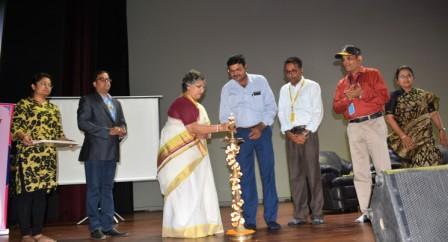BHUBANESWAR: The Department of Forensic Medicine & Toxicology, AIIMS, Bhubaneswar organised a one-day workshop on ‘PC & PNDT Act’ for final year, MBBS students of all medical colleges of Bhubaneswar here Tuesday.
The workshop was inaugurated by Director, AIIMS, BBSR Prof. Gitanjali Batmanabane and S N Mohanty, Medical Superintendent, AIIMS, BBSR. The workshop was intended to sensitise the budding doctors regarding PC & PNDT Act and prevention of sex selective abortions.
In her inaugural speech Gitanjali Batmanabane extended her sincere thanks to the PCPNDT Cell, Directorate of Health & Family Welfare, Govt. of Odisha for their support to organise and addressing this important social problem. She urged all the participants to abide by law and Act as a social messenger to improve the situation.
The workshop was also attended by Binod Bihari Rath, Joint Director, Health Family Welfare, Govt. of Odisha and Shrabani Das, PCPNDT Cell, Govt. of Odisha. Shrabani Das brought out that the present sex ratio of Odisha is near to 930, which is quite alarming. She hoped that by such workshops, future doctors would join hands and improve the situation by not performing any sex selection in their future career.
Eminent speakers of the event were S. K Dash, AIIMS, Raipur, S R Singh, R R Dash, S K Jena and B Behera of AIIMS, Bhubaneswar. A short play ‘Betiyan Hai BARDAN’ was performed by students of AIIMS, Bhubaneswar to sensitise the participants.
The present sex ratio of India is 940 female per 1000 males as per census 2011. Though there is improvement over previous census (2001) but still India is far away from the ideal situation. However, sex ratio of 0-6 yr age group is strikingly low this is due to negligence of girl children.
About 300 final year students of the 4 medical colleges of Bhubaneswar AIIMS, IMS & SUM Hospital, Hitech Medical College and KIMS had participated in the event and had vowed to abide by law and improve the scenario.
Power of Continuity
Since its second term, the Modi government has retained top civil servants beyond retirement for ‘continuity in policymaking’. Weeks after...
Read more






































